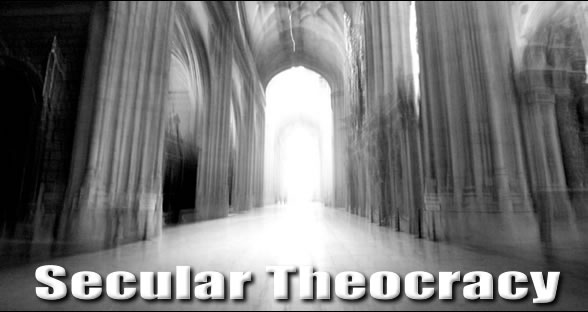 [We live in a secularized world of nation states in which traditional religion, especially Christianity, is unwelcome. Rooted in the “Enlightenment,” this view supports a secularized and authoritarian public square enforced by government and that progress requires forcing religion ever backward into remote corners of society. In short, America has become a secular theocracy with a civic religion of national politics (nationalism) occupying the public realm in which government has replaced God.]
[We live in a secularized world of nation states in which traditional religion, especially Christianity, is unwelcome. Rooted in the “Enlightenment,” this view supports a secularized and authoritarian public square enforced by government and that progress requires forcing religion ever backward into remote corners of society. In short, America has become a secular theocracy with a civic religion of national politics (nationalism) occupying the public realm in which government has replaced God.]
Continued from Part 1:
During the Enlightenment, nationalism became the new civic religion, in which the nation state was not merely a substitute for the church, but a substitute for God, and political religion benefited from being more tangible than supernatural religion in having the physical means of violence necessary to enforce mandatory worship and funding. Nation states provided a new kind of salvation and immortality; one’s death is not in vain if it is “for the nation,” which will live on.
This “myth of religious violence” lived on with legal theorist John Rawls who claimed that the modern problem is a theological one and the solution is political. For Rawls, since people believe in unresolvable theological doctrines over which they will kill each other, a secular state must rule. Similarly, Stanford law professor Kathleen Sullivan, a secularist, has claimed that as a necessary condition for peace to avoid a “war of all sects against all,” religion must be banished from the public square.
As William Canavaugh notes, “[O]nce the state had laid claim to the holy, the state voluntarily relinquished it by banning religion from direct access to the public square . . . then what we have is not a separation of religion from politics but rather the substitution of the religion of the state for the religion of the church.”
No comments:
Post a Comment